- WEALTHY: My 9 top Suggestions for making a start-up business work (Michael Masterson)
- WISE: Ben Franklin on saving
ALSO IN THIS ISSUE: - How one reader uses ETR to have a better life
- A juicy bit of information that's so good ... I'm not sure I want to share it
- Why a yuppie is like a laser

* Highly Recommended * "I lost my fear, opened my mind and listened and I cannot believe the result." Hello Bob, I finished The Billionaire Way about 10 days ago. Now I promise you I did not cheat on this so hear me out. I started the first two or three days I think and there was a transaction I was involved in that I was not comfortable with but had an emotional attachment to. I sat down one night and crunched the numbers and made some tough decisions, all emotion aside. Then about two weeks into the program there was the day when we had to exclude our emotions and cut off dead baggage. Wow, I felt like yeah, OK I'm getting this because I just did that. OK so now I'm tearing along the program, accepting things that I am already doing and working on the things I am not comfortable with. Vigilantly everyday, watching the DVD after the kids were in bed and working my work book. Two days after I finished the program I saw an opportunity which I could assess very well given my clarity of vision, my assessments of my talents and the work I had accomplished. It is my joy to tell you that I am founding executive of a new international network marketing company, the likes of which have never been seen and I have already built my team Australia wide within 10 days, using the billionaire way techniques. I lost my fear, opened my mind and listened and I cannot believe the result. Thank you so much... Regards,
Kathy Learn more about The Billionaire Way program today... 
"If you would be wealthy, think of saving as well as getting." - Benjamin Franklin Accelerating Your Retirement: Start Your Own Business By Michael Masterson While many people fail in business, many more succeed. If you subtract the foolish failures - restaurants being the most foolish, followed by any sort of glamour business (think travel, bed & breakfast, sports, celebrity) or retail business - the number of successes far outweigh the failures. When starting a business, you can drastically reduce your risk of failure by becoming an expert in two areas: 1. First you must understand everything you can about the products and/or services you will be selling. 2. Second, you must become competent (and eventually masterful) at the specific marketing skills you need to sell them. How do you become an expert in two things simultaneously? The best way I know is to get a job working for the type of business you want to start. Think of your employment as a paid training program. Work fifty or sixty hours a week (even if they don't pay you a nickel extra) absorbing everything you can. Pay particular attention to people and situations that help you understand how the business works. By learning "on the job," you'll develop skills and accumulate ideas that will make starting your own business a hundred times easier. Some of these skills will be of a more general kind, like writing effective memos, pitching ideas at meetings, handling troublesome people, etc. Some of them will be more targeted: such as how to write persuasive copy or how to select lists of names to send promotions to. The same will be true of the ideas you get. Some will be small - a clever way to run a meeting, a useful technique for following up on delegations, etc. And some will be big, powerful and very exciting. The more you learn, the easier it will be to add to your knowledge and the more eager you'll become to start your own business. Try to resist that temptation until you've invested at least 600 hours in learning the product/service side of the industry and another 600 learning the marketing. Remember, any complex skill takes about 1000 hours to learn and even if you have good teaching, you still need at least 600 hours before you know enough to avoid the obvious mistakes. When it comes to launching your business, don't reinvent the wheel. Come up with a product and a marketing position that is 80% to 90% the same as what your most successful competitors are doing. Remember, there is a good reason that they are successful. By investing 600+ hours into learning the product/service part of the business and another 600+ hours on the marketing, you should already have a good idea about why things work. But you aren't yet an expert. It takes much more time (about 5000 hours) to do that. And that's why you have to proceed with caution - one small step at a time. Yes, you should try new things, but as I said they should be only 10% to 20% new. Taking this sort of conservative approach will not limit your growth because you will be able to "catch up" later. If you aren't careful and try something entirely new and different, chances are it will fail - however good you think the idea is. Remember: the key idea is this: until you've had 5000 hours of experience, you are not an expert. Don't act like one. How to Make Your Start-Up Business Profitable in Year One You can invest a small amount of money (and a lot of hard work and well-spent time) in a small business and see it grow into a business that is worth a million in seven years. And you'll greatly increase your chances for success by having a plan - by knowing exactly what you need to do. A typical start-up business that's close to what you already know should break even or lose a little money in year one, make a decent "salary" for you in year two, and provide a substantial bonus for you - in additional to a good, arm's-length management salary - in year three. To make your business profitable in year one, figure out what you need, in terms of new customer revenue, to bring a profit to the bottom line. Then devote at least 80% of your resources - your time and money - to achieving that new customer revenue goal. The key is to follow a program that breaks long-term goals down into shorter-term objectives and finally specific tasks. Each individual task should be something that can be accomplished fairly quickly. In terms of your marketing objectives, for example, individual tasks might look something like this: (1) Stop by three offices and leave brochures. (2) Call up such-and-such group and see if they would like to have you give a talk. (3) Buy a quarter-page ad in the local newspaper. Put all of these small achievements together and you can achieve remarkable success in a very short period of time. 8 Important Things to Know About Business Apart from starting (and sticking to) a what is already working (and not getting too fancy), I've discovered eight secrets to making a start-up business work. 1. Business doesn't happen until you make the first sale. Buying office furniture and printing cards doesn't make the business go. Selling product does. Yes, there are some initial preparations you need to make - but until you have that first check in hand, all you're really doing is spending money. 2. The single most effective way of entering a new market is to offer a popular product at a significantly reduced price. In every industry, there is a good market for specialty and high-quality product producers - but capturing a reasonable share of those niche market segments takes money, time, and experience. When starting a new business, you are usually short in these three essentials. That's why it's better to resist the allure of high-priced, prestige products in favor of selling the most desired products and services at ludicrously cheap prices. If you can figure out how to undersell the giants, you will be in a very happy starting place. 3. It's ultimately about selling. Conventional business wisdom says you make money when you buy, not when you sell. I disagree. Great businesspeople make their fortunes by increasing the perceived value of their products, thus inflating prices and measurably increasing profit margins. (Think Chanel, Rolex, Range Rover.) 4. When choosing a business, select one that can be grown without your personal involvement. Many businesses - especially those built around the personality or drive of a single person - depend for their growth on the commitment of the founder. Avoid this type of business. It severely limits your growth potential. Make sure your business can expand with the addition of more money, property, or people - but not more of you. 5. Have an exit plan. Before you invest your time or money in any business (or anything else, for that matter), know exactly how much you are willing to lose - and get out if you hit that stop-loss point. 6. Focused effort is more effective than a diversified approach to business building. Ambitious people tend to fall into two groups: those who focus on one project at a time and those who spread themselves out on many projects. The focused approach allows you to acquire mastery faster. The diversified approach gives you more balance. I've done both. And although I'm naturally inclined toward diversification, I've had the most success and made the most money from the focused work. 7. Let your winners run and cut your losses short. Most business ideas or ventures that begin poorly, fail. This is a very important to learn. It's easy to get emotionally attached to projects/investments we believe in. But, when the marketplace tells you that your great idea is a loser, you shouldn't keep pushing. Close the project and minimize your losses. If you really have a good idea, it will come back to you in the future in another, perhaps better, set of clothing. 8. Pareto's Principle (the 80-20 Rule): 80% of your success comes from 20% of your resources. Most of the success/income/satisfaction you will get in your career will come from a small portion of your skills/projects/efforts. Make it a habit to ask yourself, "Where am I getting most of the benefit here?" and compare that to where you are putting in the most work. Having your own business is the fastest (and most satisfying) way to a happy, wealthy retirement. So if you don't already have a good idea for starting a side business spend some time thinking about it. To give yourself the best odds of being successful, either start a business that is already very close to the work you do now, or get a job working for a business in the industry you want to enter. Once you have your idea, start turning it into reality by applying the ETR goal-setting system. Break down your five-year goal for your business into manageable yearly, monthly, and weekly objectives. Then turn your objectives for that first week into daily tasks that you can get started on right away. 
* Highly Recommended * Special Report: How to Turn $1,000 into over $900,000 For years, financial experts have led you to believe that investors who want outsized gains must take on ridiculous risks. I'm here to tell you that it's all a lie. Click here to learn how a small one-time investment could grow until it's larger than all of your other investments combined. 
The Best Way to Beat the Flu By Al Sears, MD When I was a child, I was taught that if you felt a cold or flu coming on, the way to prevent it from blossoming into a full-blown illness was to go outside and soak up the sun - a bit of wisdom that had been passed down from my grandmother. Her theory was that a lack of "fresh air" and sun caused the infection. This theory appeared arcane when scientists discovered that a virus causes the flu - but new research has found merit in it. And the next time you're exposed to the flu, it may serve you better than drug therapy. Researchers at Harvard University concluded that a lack of sun during the winter months prevents your body from making the one thing it needs to ward off the flu: vitamin D. Which may explain why some people catch the flu, while others don't. I don't think I've ever had it, yet I am repeatedly exposed me to heavy viral loads while examining infected patients. Fact is, vitamin D deficiency is rampant in non-tropical latitudes ... like here in the U.S. And during the winter, it gets worse - raising your risk of catching a cold or the flu. When you can't spend time in the sun, cod liver oil is the most effective and reliable source of vitamin D. I recommend it for my patients, especially during the winter. In fact, I use it so much that I have begun importing my own cod liver oil from the cold waters of Norway. It's completely free of mercury. [Ed. Note: Dr. Sears, is a practicing physician and a leading authority on longevity, physical fitness, and heart health. As Chairman of the Advisory Board to ETR's FREE natural health e-letter, Dr. Sears and a team of health experts will give you practical strategies and real-world scientific discoveries that can help you melt off the pounds, pack on muscle, and eliminate the underlying causes of disease.]  Reader Feedback: "I love ETR. I've learned a lot from it." "I'm a regular reader. Have been for the last two or three years. I love ETR. I've learned a lot from it. "First, I heeded your advice of learning a financially valuable skill (in my case, copywriting) and getting a second income. I love reading marketing books, so I wanted to do something along those lines. "I turned my favorite pastime into a money-making venture: trading and dealing in rare business books. I don't make millions doing so, but I love doing it and it's a great way to make extra money. "Basically, I used direct marketing - over the Net - [to start my business]. I use the Internet auction site eBay. Some weeks, I've pulled in almost $3,000 ... and I've even been featured in a paper with a circulation of almost 1 million people because of it. I've also been asked by eBay's PR company to be a success case study! "I used another concept that you favor: a joint venture. That joint venture has meant that I've been able to mail 50,000 sales letters at absolutely no cost to me - in just the last couple of months alone. It just goes to show that there are no excuses ... even with zero money, you can still start a business. "I utilized the 'business within my business' by effectively becoming a consultant to other people who wanted to make more money (i.e., most of the population). You see, whilst I've concentrated in a specific niche market, I believe my concepts are universal - and duplicable. "It all came about by my actually doing something - anything - rather than sitting back and procrastinating. Unfortunately, that's what nearly everyone does ... they do nothing and ultimately they get nothing! It's all about taking that first step and going from there as your experience and confidence grow." - Arnie G. 
It's Good to Know: How to Get the Best Seat on an Airplane This information is so good that I'm reluctant to give it out. Other than knowing the differences among window, aisle, and bulkhead seats, most people have no clue as to whether one spot on a plane is better for them than any other. But now there are two websites that list the major carriers and the aircraft they use (e.g., DC10, 737, etc.) - and comment on the best and worst seats in each type of configuration. Some of their ratings are based on obscure criteria that you can't determine from a seating diagram, such as annoying bright lights, bothersome movie screens, small windows, etc. See seatguru.com and seatexpert.com for details - and don't tell anyone else about this. 
* Highly Recommended * How to Write a Winning Sales Letter Is it possible to go from a blank sheet of paper to a completed sales letter in 48 hours? There's a good chance ... if you use what's called the Filet of Soul technique. You start with the most successful promotion that your company (or your competitor) is running for a similar product. No, you don't steal the copy - you "filet" it, cutting down to it's backbone ... the "architecture" that makes it work. Analyze the copy, section by section. What emotions does it evoke? How does each paragraph make you feel? Write it all down ... and that's it. You now have a rough outline for your own successful sales letter! I discovered this technique in the "75 Secrets for Writing Winning Copy" report included with ETR's Direct Marketing University program. I keep it on my desk, right next to my computer, so it's always handy whenever I need a fresh shot of inspiration. - Charlie Byrne 
Word to the Wise: Acronym An "acronym" (AK-ruh-nim) is a word formed by combining the initial letters (or parts) of several words. Some common words that you might not recognize as being acronyms include: - laser (Lightwave Amplification by Stimulated Emission of Radiation)
- radar (RAdio Detecting And Ranging)
- scuba (Self-Contained Underwater Breathing Apparatus)
- sonar (SOund NAvigation Rangin)
- yuppie (Young Urban Professional)
[Ed. Note: Become a more persuasive writer and speaker... build your self-confidence and intellect... increase your attractiveness to others... just by spending 10 VERY enjoyable minutes a day with ETR's Words to the Wise CD Library.] | 




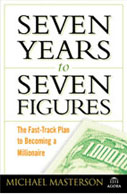
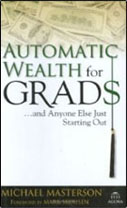
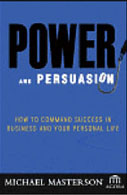
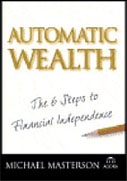
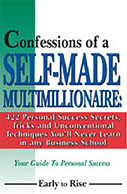
Comments
Post a Comment